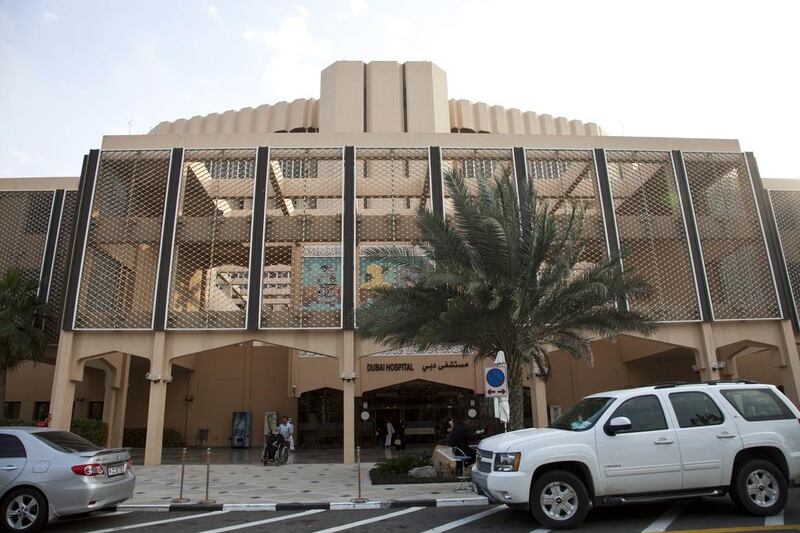DUBAI // Thousands of dialysis patients have been given hope of a new life with the opening of the emirate’s first kidney transplant centre.
Dubai Hospital is the emirate’s first to offer transplants for those with kidney failure, meaning dialysis patients will no longer have to travel abroad for surgery.
Health authorities have welcomed the news, saying transplants are a much better option than dialysis and allow the patient to live a normal life.
“Dubai Hospital has seen a steep rise in the number of patients with kidney diseases,” said Dr Abdulrazzak Al Madani, chief executive of the hospital.
“We provide a dialysis service to hundreds of patients and the numbers are on the rise.
“We realised there is a need for introducing kidney transplant services so that patients do not need to travel abroad.”
The first kidney transplant at the centre is expected to be performed in April.
The only other authorised transplant centre in the country is at Sheikh Khalifa Medical City (SKMC) in Abu Dhabi.
“By providing this service locally, we will be able to reduce the time these patients spend in hospitals for dialysis, improve their work and exercise capacity and overall health and life expectancy, so that they lead a normal life and resume their full-time employment,” said Dr Al Madani.
Dr Ammar Abdulbaki, a transplant nephrologist at SKMC, welcomed the clinic’s opening.
“This is very good news. I am very happy,” said Dr Abdulbaki. “It is a big development for the UAE.
“There are many people who are awaiting kidney transplants. I would say we have about 1,600 dialysis patients in the country and about half of them need a transplant.”
Diabetes, for which the UAE has one of the world’s highest rates, is the main cause of kidney failure.
Patients with renal failure can suffer medical problems including blood clots and inflammation, and must undergo painful procedures such as having a catheter fitted.
Dr Farhad Aljanahi, specialist urologist and transplant surgeon at Dubai Hospital, said many dialysis patients had already been identified as suitable candidates.
Dr Aljanahi said the transplant team would first focus on transplanting kidneys from live donors, including relatives.
“A large percentage of our patients develop chronic kidney disease as a secondary complication of diabetes or high blood pressure, which are both becoming increasingly prevalent in our region,” he said.
“Many of them gradually proceed to end-stage kidney disease and kidney transplantation offers them a better life. Kidney patients on average need costly dialysis treatment three times a week, up to five hours at a time.
“Dialysis is a death sentence. No one can sustain it for ever. At most, dialysis provides about 10 to 20 per cent of the kidney function. Transplants for the patient are much, much better than dialysis.”
The Dubai centre is collaborating with a transplant team from the Royal College of Surgeons in Ireland and the Beaumont Hospital in Dublin.
Beaumont holds the National Kidney Transplant Centre, one of Europe’s leading kidney and pancreas transplant clinics.
Last year, the Ministry of Justice, Ministry of Health and Awqaf, or General Authority of Islamic Affairs and Endowments, finally endorsed organ transplants from a deceased donor.
Transplants were legalised in 1993 but the law failed to include a medical definition of death, and whether it included brain death, making it impossible to use organs from dead patients.
But this was finally clarified and in May the first kidney transplant from a deceased donor was carried out on a 23-year-old woman in Abu Dhabi.
Dr Abdulbaki, also medical director of SKMC’s transplant programme, helped to revise the law.
The law requires authorities be formed to regulate organ transplants, including the National Transplant Centre, which will allocate the organs, and the National Transplant Committee.
Dr Abdulbaki said he could envision many more transplant centres opening.
jbell@thenational.ae





